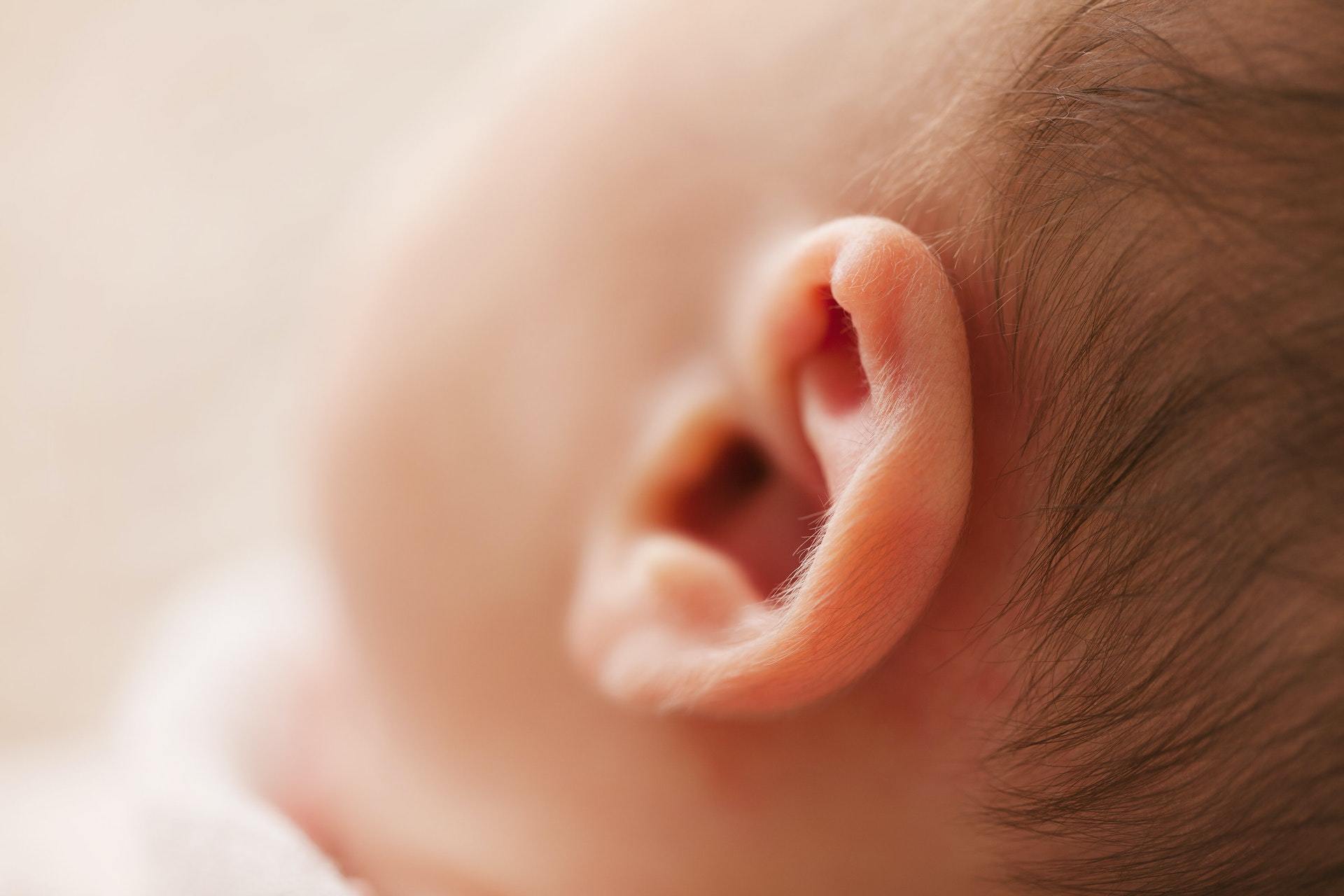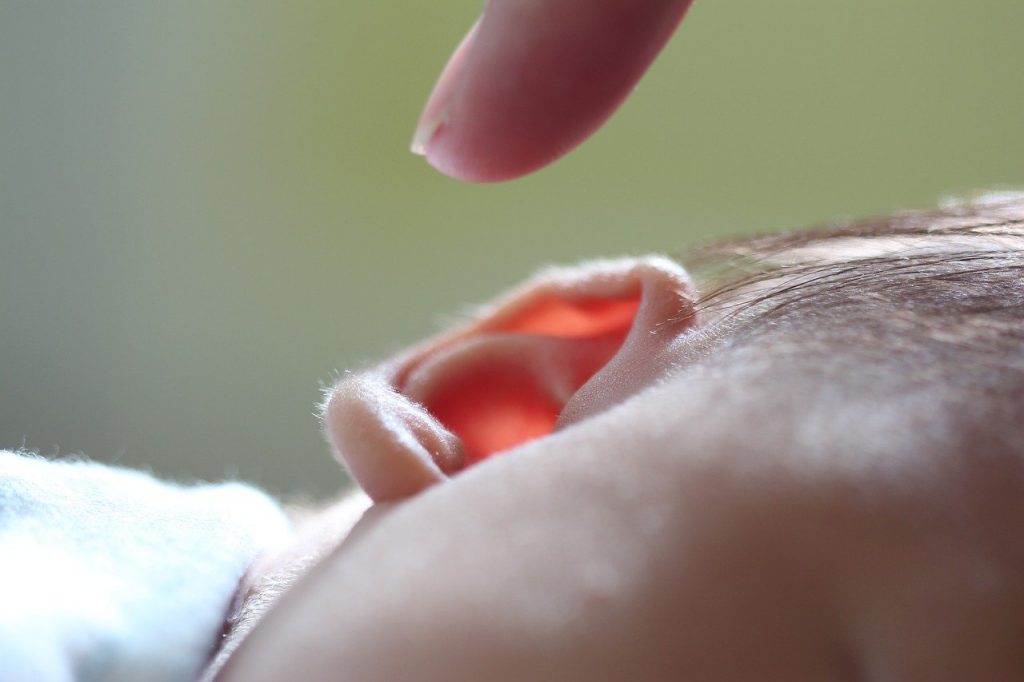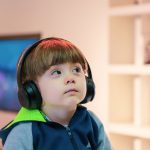
Just as adults can have hearing loss, so can children. The major issue with hearing loss in children is that even if they have mild hearing loss, this will still affect their ability to understand certain parts of speech. As children are rapidly learning language from the moment they are born, if left untreated, hearing loss can significantly delay their speech development.
This article will explain some of the causes of hearing loss in children and outline potential treatment options.
Contents
How Common Is Hearing Loss in Children?

Hearing loss is relatively common in children. In fact, a national survey estimated that approximately 15 percent of children have hearing loss. However, in most cases, hearing loss is found to be mild and in only one ear. As you might expect, severe levels of hearing loss occur less frequently in children.
Other studies show that 30 percent of all children with hearing loss may have one or more visual, physical, or other special needs that don’t have anything to do with the ear.
What Can Cause Hearing Loss in a Child?
Your baby can be born with hearing loss. This is referred to as congenital hearing loss and has many causes, although it’s sometimes difficult to pinpoint the exact one. In approximately 50 percent of cases, the cause of congenital hearing loss is genetic, meaning it’s inherited from a parent.
Genetic causes of congenital hearing loss include:
- Autosomal recessive hearing loss – neither parent has hearing loss, but each parent passes on a ‘hidden’ recessive gene to their child. When each parent carries this recessive gene, the probability of the child having a hearing loss is 25 percent. This accounts for approximately 70 percent of all genetic congenital hearing loss cases.
- Autosomal dominant hearing loss – one parent passes a dominant gene for hearing loss to the child. When a parent has this dominant gene, there is a 50 percent chance that this gene will be passed to the child. This accounts for approximately 15 percent of genetic congenital hearing losses.
- Genetic syndromes – including Usher syndrome, Waardenburg syndrome, Treacher Collins syndrome, Down syndrome, Crouzon syndrome, and Alport syndrome.
Non-genetic causes (accounting for 25 percent of all cases of congenital hearing loss) include:
-
- Birth complications – including serious infections such as herpes, rubella cytomegalovirus, toxoplasmosis; lack of oxygen; or needing a blood transfusion
- Premature birth
- A disorder of the brain or nervous system
- Ototoxic medication used during pregnancy by the mother – including antibiotics and some pain relievers
- Maternal diabetes
- Drug or alcohol abuse, or smoking, by the mother during pregnancy
For the remaining 25 percent of congenital hearing loss cases, generally, a cause cannot be found.
Hearing loss can also affect children after birth. This is referred to as acquired hearing loss, and can also occur for various reasons such as:
- Glue ear – fluid build-up in the middle ear is common in young children
- A perforated eardrum
- Untreated or frequent ear infections (otitis media)
- Illnesses such as meningitis and encephalitis – these involve swelling in the brain and can lead to hearing loss
- Damage to the cochlear or auditory nerves – a severe head injury, exposure to loud noise or head surgery can disrupt signals sent to the brain
- Otosclerosis or Meniere’s diseases
- Measles, mumps, or whooping cough
- Taking certain medications associated with hearing loss
- Exposure to secondhand smoke or other toxins
Some children experience temporary hearing loss, which can come and go. It might be reassuring that this is not a lifelong affliction, but it can still impede their speech and language development. This is commonly caused by ear infections, as the Eustachian tube in the ear is smaller and especially susceptible to blockage in children.
Excess fluids in the middle ear can also prevent small middle ear bones from functioning properly, causing hearing loss. While this usually resolves itself, if left untreated, middle ear infections can cause a permanent sensorineural hearing loss.
Your child could also have an auditory processing disorder, meaning their ears can detect sound without issue (they have normal hearing), but their brain has trouble interpreting sound correctly. They might pass a standard hearing test, but struggle to hear in noisy environments.
How Do I Know If My Child Has a Hearing Problem?

Medical staff should routinely screen your baby for hearing problems in the first few days after birth. Two common screening methods for babies are otoacoustic emissions (OAEs) and auditory brainstem response (ABR).
However, your child might pass these tests yet still present signs of hearing loss later on.
You can keep track of their hearing by monitoring these speech and hearing milestones laid out by the American Speech-Language-Hearing Association (ASHA).
In older children, some signs can help alert you to potential hearing problems. These include inattentiveness or poor concentration, not responding when their name is called, talking loudly, complaining of ear pain, watching a speaker’s face intently (indicating they might be lip-reading), listening to the television at a high volume, having difficulty pinpointing where a sound is coming from, and mispronouncing words. There might also be a change in their progress at school.
If your child seems to be struggling with their hearing, visit a pediatrician as soon as possible.
Treatment for Childhood Hearing Loss
As hearing helps a child to develop their speech and language skills, hearing loss cannot be ignored.
If your child shows any of the signs of hearing loss, they need to be seen by a doctor who can refer them to a pediatric audiologist for hearing tests. These are easy, painless, and non-invasive.
There are different types of hearing loss, so it’s important to know the exact nature of your child’s issues. The best treatment for your child will depend on the severity and cause of their hearing loss.
If the hearing loss is caused by a wax buildup or ear infection, the audiologist will resolve the problem or refer you to an otolaryngologist (ear, nose, and throat physician) who might be better equipped to remove the temporary hearing obstruction.
If your child has permanent hearing loss, the audiologist will talk you through various treatment options. Hearing aids, cochlear implants (that directly stimulate the auditory nerve in the inner ear), bone-anchored hearing systems (for children with severe outer or middle ear malformations or single-sided deafness), and a combination of speech therapy or assistive listening devices (such as FM systems) might be recommended forms of treatment.
Speech Development and Communication
Your child’s ability to hear is central to their language and speech development and ability to communicate and make friends with peers. The effect that hearing loss is likely to have on your child will depend on the age it develops, its severity, how fast and effectively it is treated, and the extent to which extra learning resources and assistive devices are provided for your child.
Hearing Loss at School

Your child’s school will also have a responsibility to help with extra learning arrangements. Arrange a meeting to sit down and discuss your child’s needs with their teacher.
There are ways to improve your child’s experience at school. For example, FM systems can work in conjunction with a child’s hearing aid or cochlear implant and work to overcome the poor acoustics of the classroom. The teacher wears a discreet microphone that transmits their voice directly to your child’s hearing aids or cochlear implant, allowing them to hear effectively and fully participate in class.
The information in this guide has been written using the following reliable sources:
https://www.healthyhearing.com, https://www.asha.org, https://www.nhs.uk, https://www.cdc.gov, https://www.msdmanuals.com








